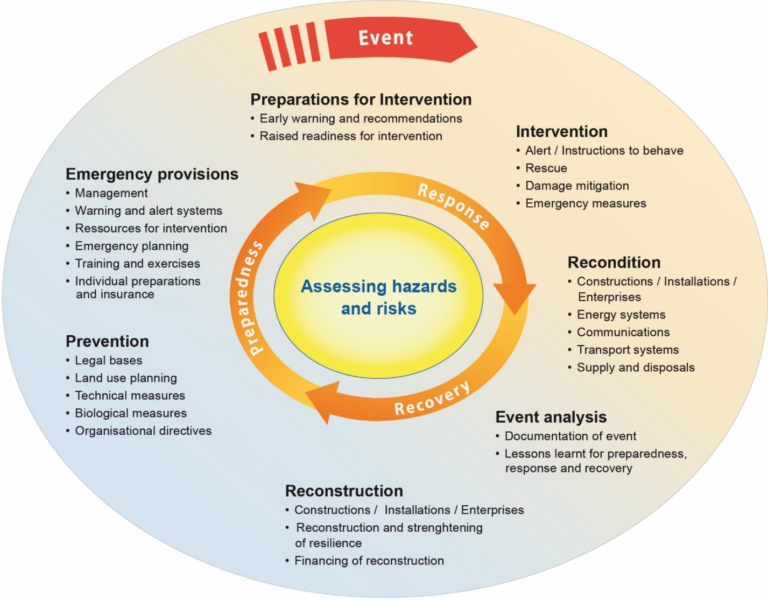Trucking Insurance: Top 5 Claims and How to Prevent Them
In the dynamic world of logistics and transportation, trucking insurance is a crucial aspect of safeguarding your business against unforeseen risks. Understanding the unique insurance needs of trucking companies can help you choose the right business insurance solutions tailored to your specific requirements. With the right coverage, you can navigate the terrain of trucking claims more effectively, minimizing disruptions to your operations. This not only covers accidents but also provides essential accident prevention tips to keep your fleet safe on the road. By exploring the nuances of insurance for trucking companies, you empower yourself to make informed decisions that can lead to smoother operations and enhanced financial security.
When it comes to the transportation sector, vehicle coverage plays a vital role in protecting business assets against losses and liabilities. Companies in the freight and shipping industry must consider robust risk management strategies that encompass various forms of coverage, particularly insurance for freight haulers. Evaluating the most common claims and implementing proactive measures can significantly mitigate risks associated with transportation accidents. Moreover, understanding the landscape of top commercial vehicle claims helps businesses prepare better and potentially lower their insurance premiums. Emphasizing preventive tactics and comprehensive risk assessments can pave the way for safer operations and peace of mind in this competitive field.
Understanding Trucking Insurance Basics
Trucking insurance is essential for businesses operating in the freight industry. It provides protection against a myriad of risks, from vehicle damage to liability claims that can arise from accidents. For any trucking company, choosing the right insurance policy is crucial to ensuring the longevity and financial stability of the business. It’s imperative to understand the different types of coverage available, including cargo insurance, liability insurance, and physical damage insurance. Familiarizing oneself with these options will not only help in selecting the appropriate coverage but also in understanding potential claims.
Furthermore, businesses should also consider their unique needs when evaluating trucking insurance solutions. Factors such as the type of freight being transported, the distance traveled, and the driving record of the operators can all influence the cost and nature of insurance. By tailoring the insurance selection process to the specific operational profile of the trucking business, owners can optimize both coverage and cost-effectiveness.
Top Trucking Claims: Lessons Learned
In 2014, the landscape of trucking claims was marked by several recurring issues that led to significant financial repercussions for trucking companies. The top five trucking claims included incidents of vehicle crashes, cargo theft, slips and falls, improper loading, and worker injuries. Understanding these claims is critical as it allows companies to develop better strategies for risk mitigation. For instance, vehicle crashes accounted for a substantial percentage of claims, highlighting the importance of accident prevention tips and thorough driver training programs to minimize risks.
Moreover, past claims data can guide trucking companies in making informed decisions about safety measures and insurance needs. Analyzing the nature of these top claims can lead to improved operational practices, such as better cargo securement procedures and enhanced vehicle maintenance schedules. By addressing these common claim types, trucking businesses not only reduce their exposure to losses but also can negotiate lower premiums with insurers.
Accident Prevention Tips for Trucking Companies
Preventing accidents is a primary concern for trucking companies, as collisions can lead to devastating consequences both for businesses and their drivers. To address this, implementing effective accident prevention strategies is essential. This includes regular training sessions focused on safe driving practices, as well as maintenance checks to ensure vehicles are in optimal condition. Additionally, using technology such as GPS tracking and telematics can help monitor driving behaviors and provide real-time feedback, allowing drivers to adjust their habits while on the road.
Another key strategy in accident prevention is fostering a culture of safety within the organization. Encouraging open communication about safety concerns and rewarding safe driving practices can motivate drivers to prioritize safety in their daily operations. Furthermore, maintaining clear and detailed safety protocols can equip drivers with the necessary tools to handle unexpected situations effectively. By making safety a core value of the business, trucking companies can significantly reduce their accident rates and the subsequent claims that follow.
Insurance for Trucking Companies: Navigating Options
Choosing the right insurance for trucking companies involves navigating a complex landscape of options. From liability coverage to cargo insurance, each type serves a different purpose and comes with its own set of requirements. It is crucial to evaluate not just the statutory requirements for trucking insurance in your region, but also the unique challenges your business might face based on your operations and fleet size. For example, long-haul trucking companies may have different insurance considerations compared to local delivery services.
Additionally, consulting with an experienced insurance broker can be beneficial. Brokers can provide valuable insights into available coverage options and help businesses assess their specific risks. They can also guide trucking companies in understanding the fine print of policy terms and conditions, which can prevent unexpected claims disputes down the line. By investing time in selecting the right insurance, trucking companies protect their assets and ensure they are prepared to handle claims effectively.
Business Insurance Solutions for Trucking Operations
Business insurance solutions extend beyond just vehicle coverage; they encompass a wide range of policies tailored to the nuances of the trucking industry. In addition to traditional liability and physical damage coverage, trucking businesses should consider other types of insurance like general liability insurance, workers’ compensation, and even cyber insurance to protect against data breaches. Each type of coverage plays a critical role in safeguarding the overall business operations and ensuring long-term success.
Moreover, it’s essential that trucking companies regularly review their insurance solutions to adapt to changes in their business model and risks involved. With the advent of new regulations and market dynamics, revisiting insurance needs can result in cost savings and improved coverage options. Proactive businesses that adjust their insurance solutions in alignment with industry trends will be better positioned to navigate challenges, manage claims effectively, and maintain a sustainable trucking operation.
Analyzing the Impact of Top Trucking Claims
The impact of top trucking claims can be significant on a company’s bottom line. Analyzing these claims not only helps in understanding what events lead to losses but also aids in identifying areas for improvement. For instance, if high-frequency claims stem from a particular type of accident, companies can take targeted steps to address that issue, such as implementing additional training for their drivers or revising loading processes.
Furthermore, data-driven analysis of claims can enhance strategic decision-making processes. By employing analytics to track and assess accident trends over time, companies can predict liability exposure and adjust their insurance policies accordingly. Engaging with claims data not only informs better business practices but fosters a proactive approach to risk management, directly correlating with enhanced safety measures across all operations.
Key Considerations for Choosing Trucking Insurance Providers
Selecting a reliable trucking insurance provider is paramount for the financial health of any transportation business. Key considerations include the provider’s experience within the trucking sector, their claims process efficiency, and customer service reputation. A provider with extensive knowledge of the unique challenges faced by trucking companies is more likely to offer insightful guidance and tailored solutions. Additionally, researching reviews and feedback from other trucking businesses can provide valuable insights into the provider’s reliability and responsiveness to claims.
Moreover, businesses should also assess the financial stability of insurance providers before finalizing their choice. A financially sound insurance company is more likely to handle claims efficiently and pay out in a timely manner during critical times. Therefore, conducting due diligence on potential providers—including reviewing their ratings with independent agencies—will ensure that trucking companies partner with a firm capable of supporting them during unforeseen circumstances.
The Role of Technology in Reducing Trucking Claims
Embracing technology within trucking operations can play a pivotal role in reducing claims and improving safety standards. Innovations such as dash cameras, GPS tracking, and telematics systems provide visibility into driver behavior and fleet performance, enabling proactive management of risks associated with trucking. For example, integrating dash cameras can help in evaluating incidents, offering visual evidence during claims disputes, and deterring reckless driving behaviors.
Additionally, technology can facilitate training and compliance efforts, ensuring drivers receive up-to-date safety protocols. Tools like mobile applications for reporting incidents can streamline communications and enhance the ability to respond promptly to accidents. By leveraging technology in daily operations, trucking companies not only improve operational efficiencies but also significantly reduce their likelihood of experiencing high-cost claims.
Improving Safety Protocols in the Trucking Industry
Creating and maintaining robust safety protocols is vital for the trucking industry to mitigate risks effectively. Safety protocols encompass a range of practices, from vehicle maintenance to driver training and emergency response plans. By standardizing these protocols and ensuring compliance among all employees, companies can cultivate a safer workplace environment. Regular training sessions can reinforce the importance of adhering to safety measures and outline clear procedures for handling accidents when they occur.
Furthermore, involving employees in safety discussions and encouraging feedback on existing protocols can cultivate a culture of safety throughout the organization. Conducting routine safety audits and revisiting established protocols as part of continuous improvement initiatives ensures that trucking companies stay ahead of potential hazards. By prioritizing safety and maintaining vigilant oversight of operational processes, trucking companies can substantially lower the frequency of claims and enhance overall productivity.
Frequently Asked Questions
What are the top trucking claims and how can I prevent them?
The top trucking claims often include accidents, cargo damages, and liability issues. To prevent these claims, implement accident prevention tips such as regular vehicle maintenance, driver training programs, and route planning to avoid high-risk areas.
How can I find the right trucking insurance for my business?
To find the right trucking insurance for your company, evaluate your specific business needs, assess the types of coverage available such as liability, cargo, and physical damage insurance, and compare quotes from multiple providers. Business insurance solutions should align with the risks faced by your fleet.
What should I do after a trucking accident to ensure my claims are handled properly?
After a trucking accident, it’s essential to document the scene, gather witness information, and report the accident to your insurance provider immediately. Taking actions in the first 24 hours can significantly reduce financial losses and streamline the claims process.
What coverage options are available in insurance for trucking companies?
Insurance for trucking companies typically includes liability coverage, cargo insurance, physical damage coverage, and uninsured/underinsured motorist coverage. Tailor these options to fit your operations and exposure to risk.
What advice can you give regarding accident prevention tips for truck drivers?
Ensure drivers receive proper training, encourage regular breaks to reduce fatigue, implement technology for monitoring driving behavior, and establish policies for safe driving practices. These accident prevention tips are vital in minimizing claims and enhancing safety.
What are the common causes of trucking claims?
Common causes of trucking claims include driver negligence, adverse weather conditions, improper loading of cargo, and vehicle maintenance failures. Identifying these factors can help trucking companies implement better safety protocols.
How can I reduce my business insurance costs for trucking?
To reduce business insurance costs for trucking, maintain a good safety record, invest in risk management training for drivers, and consider bundling policies for discounts. Regularly review and compare your coverage options to ensure you are not overpaying.
What is the importance of understanding the top trucking claims trends?
Understanding the top trucking claims trends helps businesses identify potential risks, adapt their safety protocols, and ultimately reduce insurance premiums through better risk management practices.
| Key Point | Details |
|---|---|
| Insurance Solutions | Finding the right insurance for your trucking business is crucial for protection against claims. |
| Top Trucking Claims | Learn about the top five trucking claims of 2014 to better prepare your business. |
| Accident Prevention | Advice is provided on how to prevent common trucking accidents and claims. |
| Post-Crash Actions | The article ‘The Time Crunch’ offers actions to take within the first 24 hours after an accident. |
| Further Reading | Explore related articles, such as the top 5 trucking claims of 2013 for additional insights. |
Summary
Trucking insurance is essential for safeguarding companies against unpredictable events on the road. By understanding the common claims from previous years and implementing preventative measures, businesses can mitigate their risks effectively. The provided resources and articles not only highlight incidents but also equip trucking companies with the necessary information to act swiftly in emergency situations. Overall, being proactive and well-informed about trucking insurance can lead to better protection and reduced financial losses.







